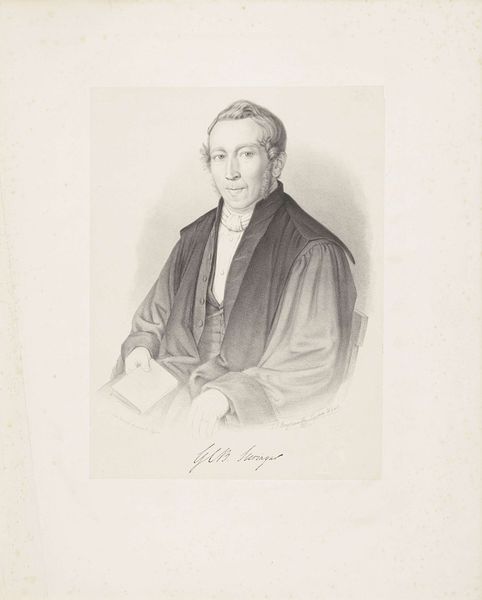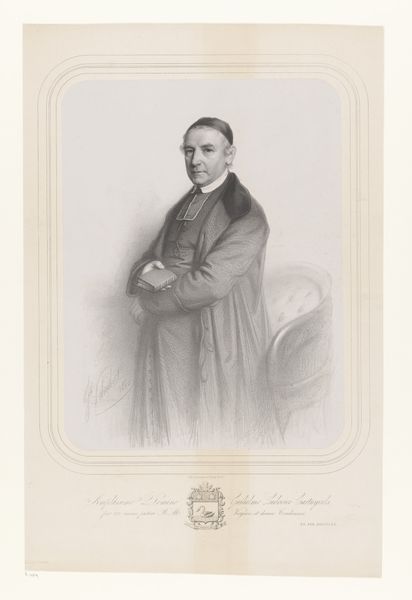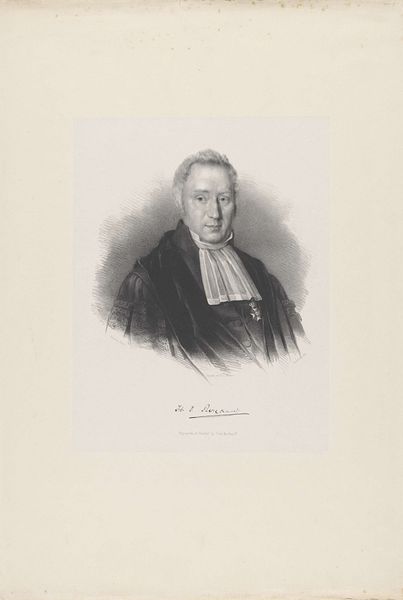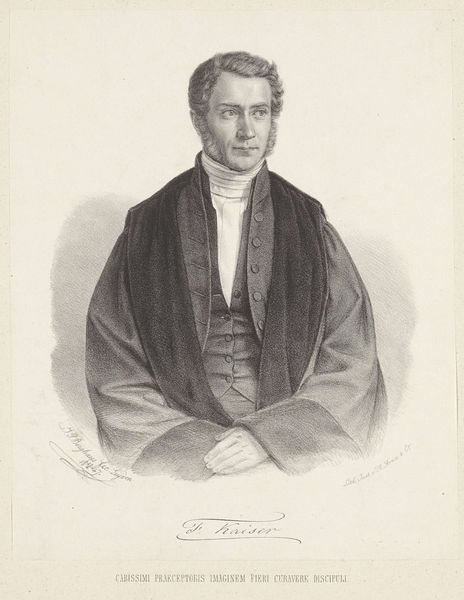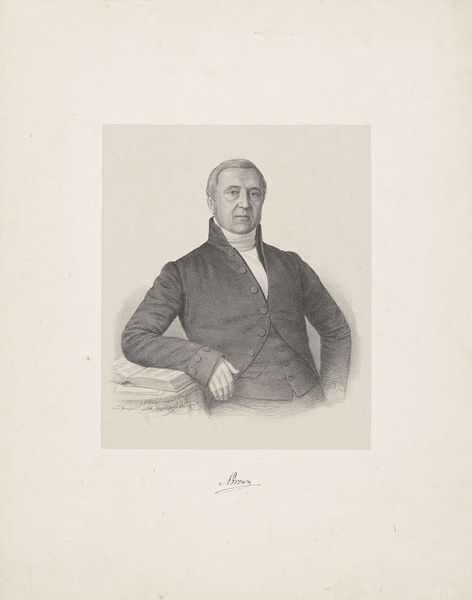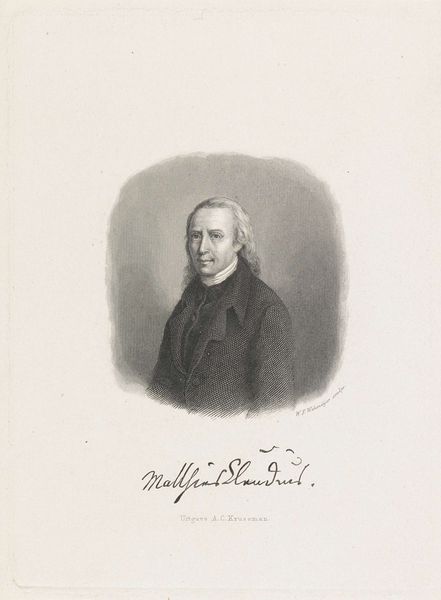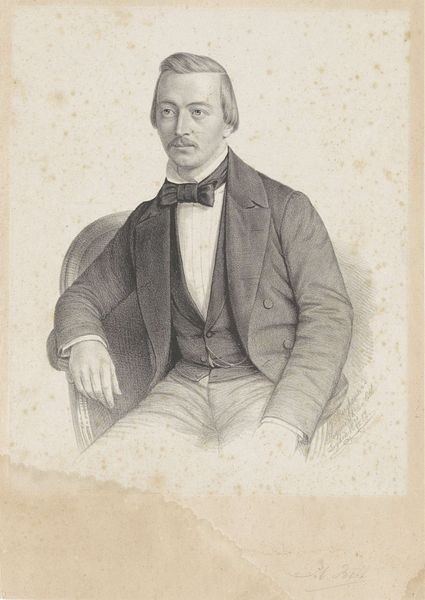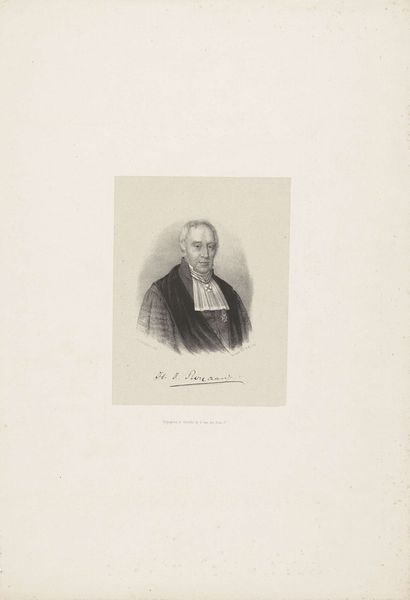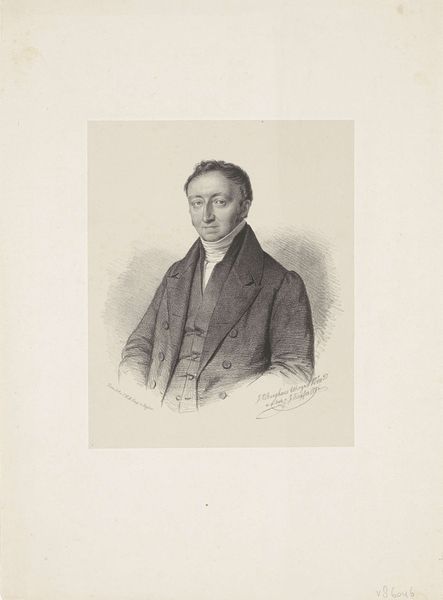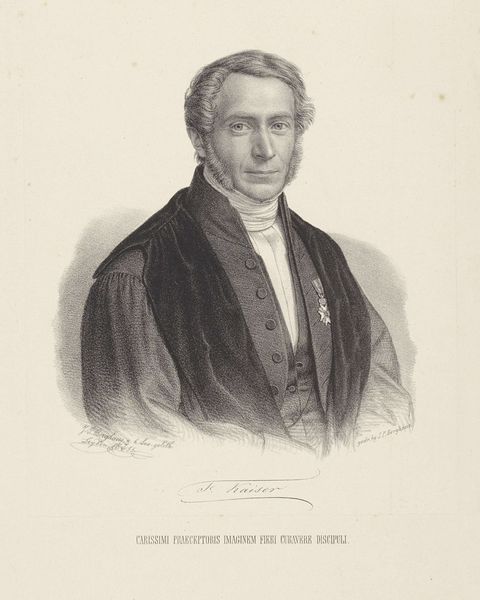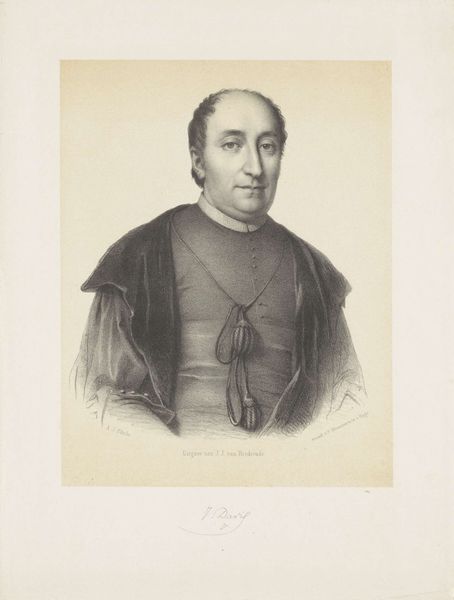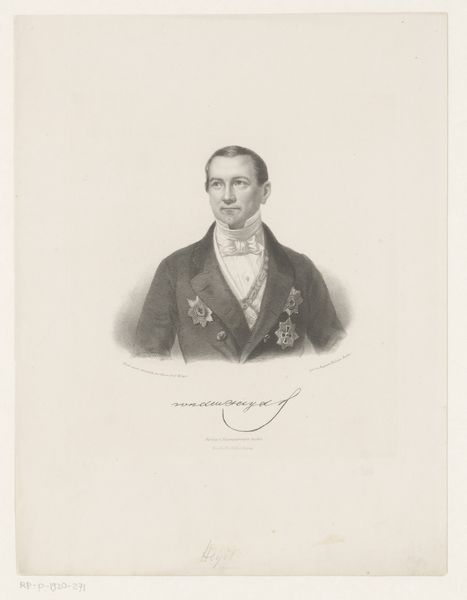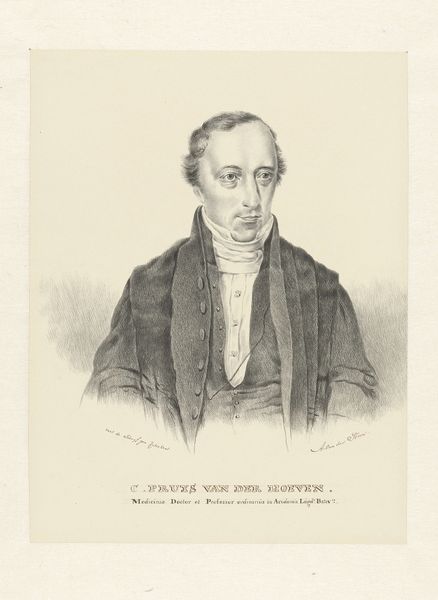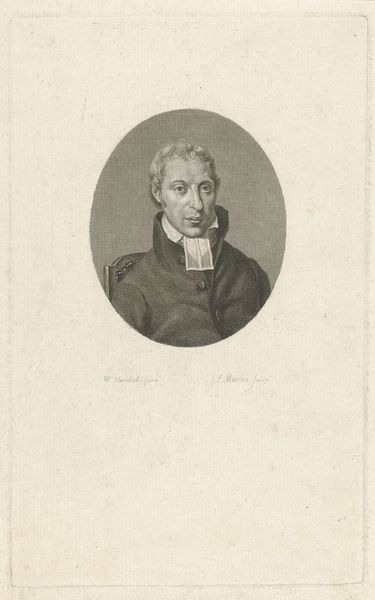
drawing, pencil
#
portrait
#
pencil drawn
#
drawing
#
pencil drawing
#
pencil
#
portrait drawing
#
academic-art
#
realism
Dimensions: height 359 mm, width 465 mm
Copyright: Rijks Museum: Open Domain
Johann Peter Berghaus created this portrait of Theodoor Willem Jan Juynboll using lithography, a printmaking process that democratized image production in the 19th century. Lithography allowed for the relatively quick and inexpensive reproduction of images, making art more accessible to a wider audience. The process involves drawing on a flat stone or metal plate with a greasy substance, then treating the surface so that ink adheres only to the drawn areas. The image is then transferred to paper. In this portrait, the lithographic technique captures fine details in Juynboll's face and clothing. The subtle gradations of tone, achieved through careful manipulation of the greasy drawing material, give the image a sense of depth and realism. The choice of lithography speaks to the growing importance of mechanical reproduction in art and visual culture. It challenges the traditional hierarchy between original artworks and their copies, raising questions about authorship and value. The making of this artwork is tied to wider social issues of labor, politics, and consumption, and the amount of work involved in the production process. Ultimately, this portrait reminds us that art is not just about the image itself, but also about the materials, processes, and social contexts that shape its creation and reception.
Comments
No comments
Be the first to comment and join the conversation on the ultimate creative platform.
